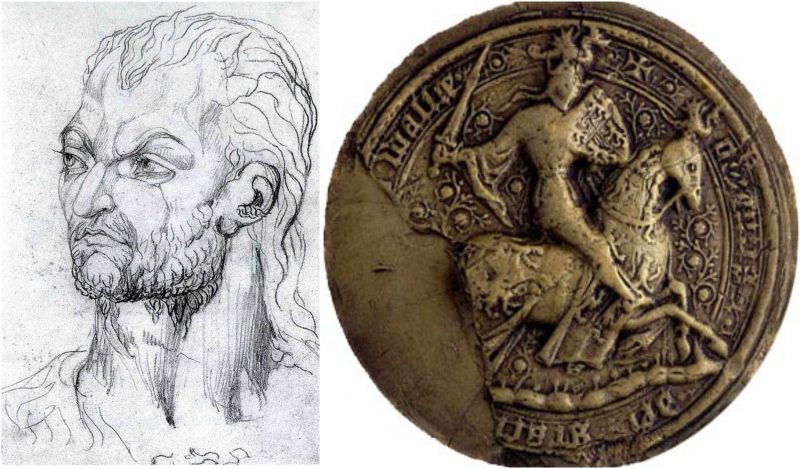Owen Glendower (Owain Glyndŵr) was a Welsh nationalist leader and the initiator of a violent and long-running revolt against the English rule of Wales.
He disappeared around 1415, and there is a saying that if at any time Wales is oppressed by England, he would return to free his country. Glendower was the son of Gruffydd Fychan II, hereditary Tywysog of Powys Fadog and Lord of Glyndyfrdwy, and claimed to be a descendant of Llewelyn the Great and the ruling princes of Wales.
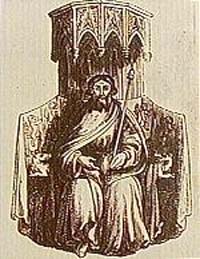
Glendower was born around 1349 as the heir to two of the four great princely houses of Wales. It is believed that in his youth, Glendower was fostered either in the home of lawyer David Hanmer, who used to be a justice of the King’s Bench, or in the household of Richard FitzAlan, 3rd Earl of Arundel. After the death of his father in 1370, Glendower went to London, where he received the most prestigious education at the time – the Inns of Court, where he probably studied law.
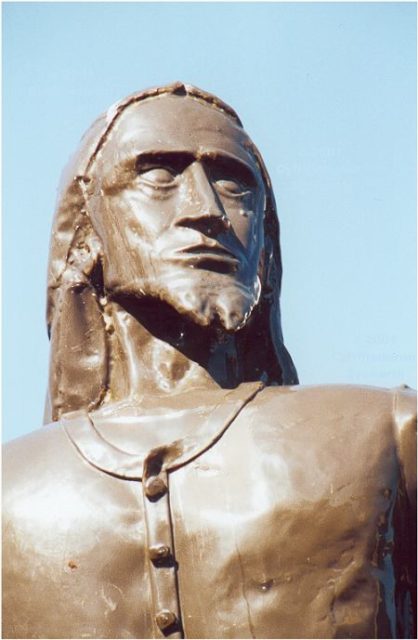
In 1383, he married David Hanmer’s daughter Margaret but the following year, in 1384, Glendower entered the English king’s military service and served the English Crown as a soldier against the Scots.
After the death of David Hanmer, Glendower returned to Wales as executor of his estates, started his large family of six children and established himself as the Squire of Sycharth and Glyndyfrdwy, with all the responsibilities which that entailed.
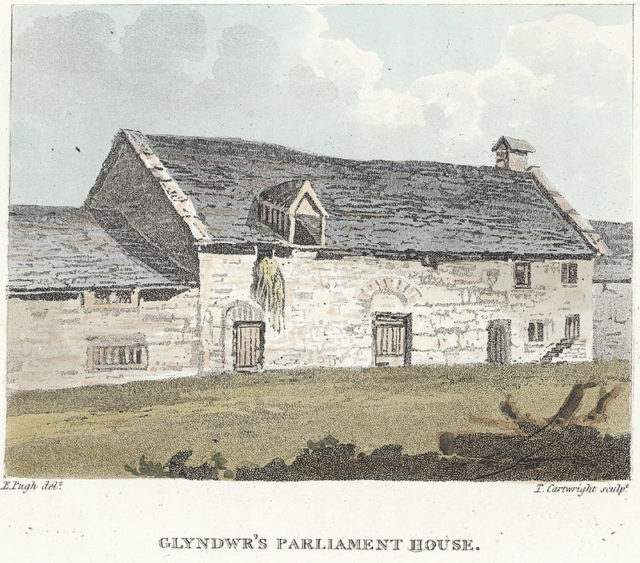
When he was around 50, in September 1400, Glendower organized a rebellion against the new English king, Henry IV and claimed the title of Prince of Wales. This event was later called the Welsh Revolt or the Glyndŵr Rising, and is known within Wales as the Last War of Independence. He became very popular among the students and laborers, who abandoned their posts in order to join Glendower in the national uprising.
There were numerous conflicts between King Henry IV and Owain’s followers at the end of 1400, so the revolt officially began in 1401. Henry IV appointed Henry Percy – the famous “Hotspur” – to bring the country back under royal control. The rebellion was also supported by hundreds of Welsh archers and soldiers who returned from the English wars in France and Scotland to join Glendower. Hotspur offered an amnesty to the rebels, except to Glendower. Hotspur put an enormous price on Glendower’s head, but nobody ever betrayed him.
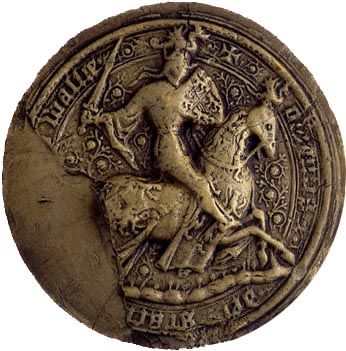
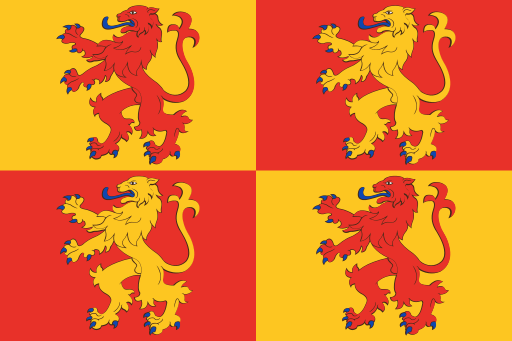
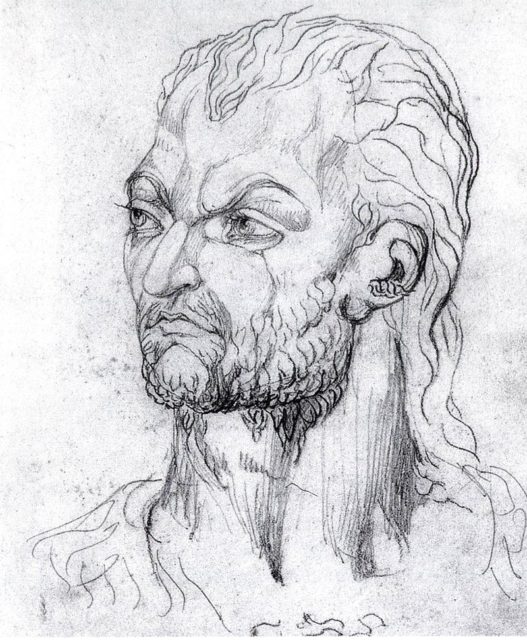
The rebellion quickly took northeastern Wales, including the towns of Ruthin, Denbigh, Rhuddlan, Flint, Hawarden, Holt, Oswestry, and Welshpool. At the same time, the Tudor brothers, Rhys ap Tudur and Gwilym ap Tudur, members of a prominent Anglesey family and cousins of Glendower, started their own guerilla war against the English. Despite the English efforts to establish order in Wales, the whole northern and central areas of the country were soon conquered by Glendower.
In 1402, the English Parliament issued the Penal Laws against Wales, designed to establish English dominance in the region. However, this move only angered the Welshmen even more, and more people joined the rebellion. In the same year, Glendower captured his arch enemy, Baron Grey de Ruthyn, and held him in captivity for almost a year until he received a ransom of £6,666 from Henry.
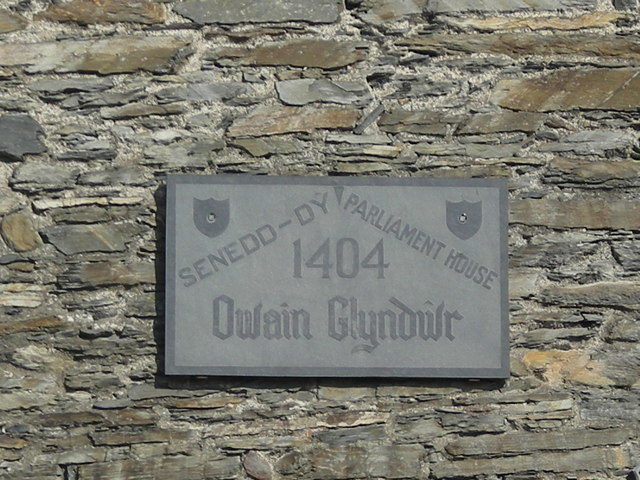
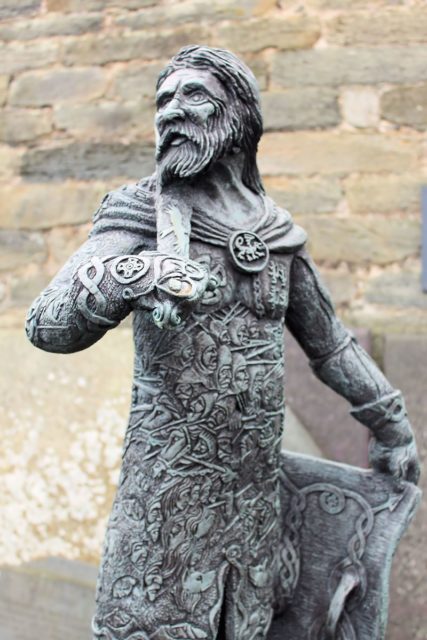
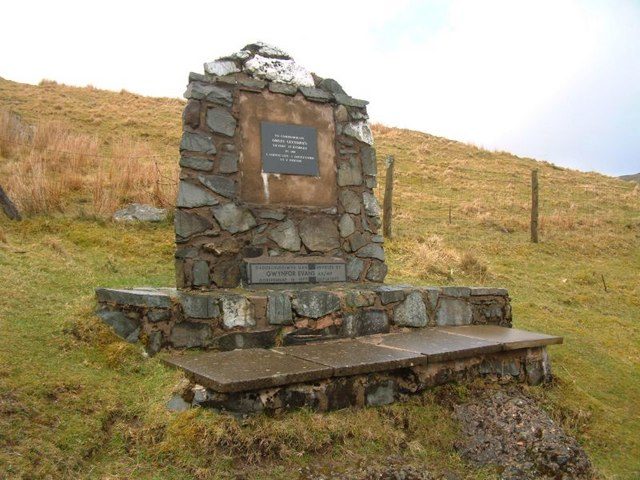
In June 1402, at the Battle of Bryn Glas, Glendower defeated an English force led by Sir Edmund Mortimer, the King’s nephew. Instead of demanding a ransom for Mortimer, he married him to his daughter Catherine. Glendower was now in a position to aim not only for the Welsh throne but for the throne of England. He issued the Penal Manifesto on the future of the Welsh Church, which was supported by most of the churchmen.
The downfall began with the battle of Pwll Melyn in 1406, when Glendower was defeated by the English forces. More and more battles ended with his defeat and in 1410 his castles were surrendered by the English, his family captured, and he became a hunted outlaw. After this, Glendower was never seen again. Despite the generous rewards for information about him, he was never betrayed or captured. It is assumed that he died on the estate of his daughters’ husband in Herefordshire, ironically in the Kingdom of England.
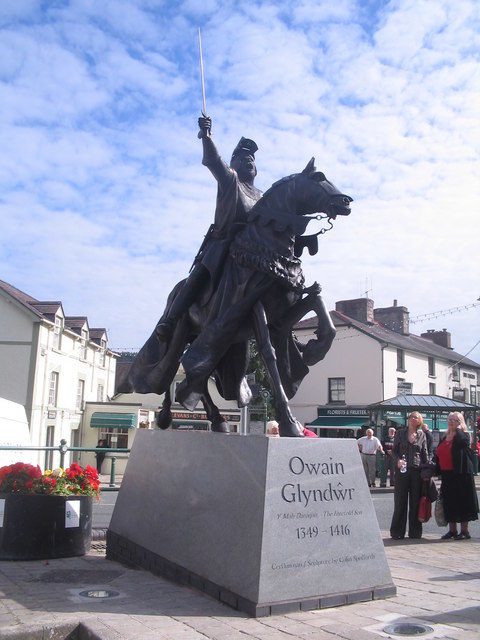
Owen Glendower is portrayed in William Shakespeare’s play Henry IV, Part 1 as a wild and exotic man ruled by magic and emotion. Today, he has a mythical status in Welsh history and stands along with Cadwaladr, Cynan, and Arthur as the hero awaiting the call to return and liberate his people.
In the late 19th century, the Cymru Fydd movement recreated him as the father of Welsh nationalism.
